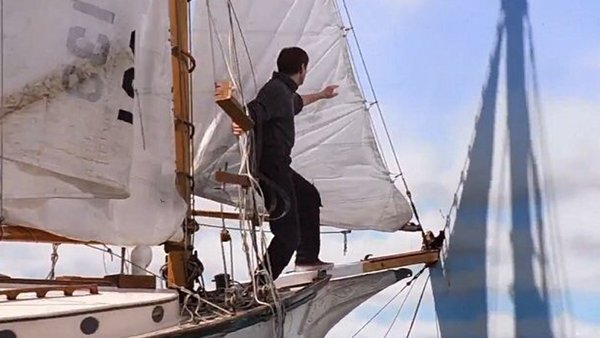Why You Will Never Watch The Truman Show The Same Way Again
What The Truman Show Has To Say About Freedom & Control

The climax of the movie involves Truman attempting to sail away from Seahaven and crashing his boat into the edge of the studio set. Carrey - in a career-defining moment of acting - gently touches the wall before slamming his fists repeatedly against it, feeling shock, anger, sadness and acceptance in an amalgamation of emotional discovery. His questions have finally been answered - to great distress.
Truman’s existential crisis is seen in this emotional climax as Christof speaks down to him from the sky in almost biblical imagery. After Christof introduces himself as the creator of the show, Truman asks “Who am I?” to which Christof tells him “You are the star”, the only real thing in a world he created for him.
Truman’s response, “You never had a camera in my head!” holds such weight for the entirety of the movie. Truman’s thoughts have always been his own. The engineered reality around him has influenced his thoughts and actions, but he’s always been the one to make them. So, therefore, the question rises to the surface - do we have true autonomy in a life controlled by the actions and the decisions of others?
This is also explored in Truman’s fear of the water, which comes from ‘losing’ his father in a sailing accident at a young age. This fear-inducing emotional manipulation is orchestrated by Christof to instill a barrier in Truman from wanting to explore beyond the sea. When Truman realises his fear was birthed from a fabricated incident, does his fear of the water now disappear? The scene plays beautifully against the ending of the film in that, just as his belief in his father dying from a sailing accident is eradicated, his crashing into the studio wall in a boat also eradicates his belief in this world he has always known.